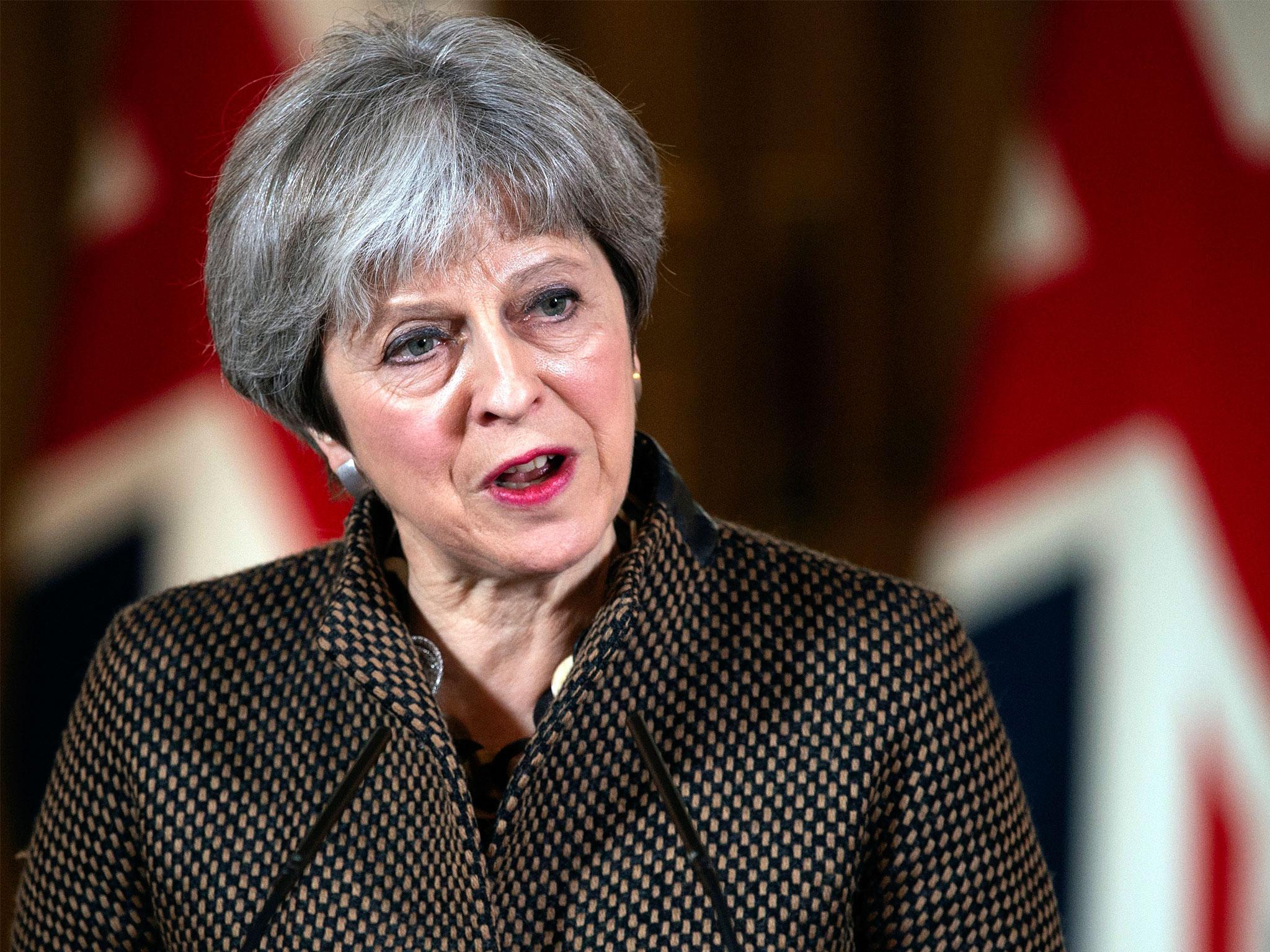Theresa May must provide a road map for the future when it comes to policy in the Middle East
There needs to be a plan as to how the UK can help the people of Syria in the months and years ahead

Chemical weapons are abhorrent, wherever they are used and however they are used. That is enshrined in the Chemical Weapons Convention. As The Independent argued in its editorial column yesterday, there is a clear moral case for enforcing that ban.
Since the United Nations is unable to act on their use in the Syrian conflict, as a result of the repeated use by Russia of its veto in the Security Council, it falls to other major democracies to do so. The Independent, however, also argued that it would be wrong for the UK to proceed with military intervention without giving the opportunity for parliament to discuss the wisdom of such action. That the Prime Minister chose to do so, even perhaps pressing the US to bring forward the attack so that it would happen before parliament reconvened on Monday, was at best improper and at worse outrageous. She has a lot to explain to parliament, and the country, right now.
For a start, she needs to give much more detail of the action itself. We need to know what has been done, what she hopes has been achieved, and whatever best explanation she can muster for her decision to proceed without a vote in the Commons. But more important than seeking to justify past action, she needs to lay out a blueprint for the future.
There needs to be a plan as to how the UK can help the people of Syria in the months and years ahead, as well as some assurance that our country is committed to this. Realistically this is a conflict that is moving towards a conclusion, and that conclusion will be that the country will be controlled by Bashar al-Assad and his supporters. This outcome will be distasteful and distressing to many, but the longer the war continues, the longer the suffering of its people – those still in their shattered land and those who have fled abroad – will continue.
What the UK thinks and does will have little influence over the Assad regime. That is the price we pay for our ill-thought-through interventions. Among the foreign powers, only Russia will have significant leverage, and it is hard to feel comfortable about that. What we can do is provide active and sustained humanitarian relief. Up to now, considerable efforts have been made, particularly in helping refugees mostly in neighbouring countries, and they should be applauded. These now need to be extended within Syria as security improves. We need a road map for how that might be done.
Beyond this, the prime minister needs to explain to parliament what British policy in the Middle East will be in the future. Most of our interventions in recent years have unfortunately made the region less stable, not more so. “First, do no harm” is the popular rendering of the Hippocratic Oath. Sadly and troublingly, we have failed to apply that principle to our policy in the Middle East. We must do better.
Join our commenting forum
Join thought-provoking conversations, follow other Independent readers and see their replies
Comments
Bookmark popover
Removed from bookmarks